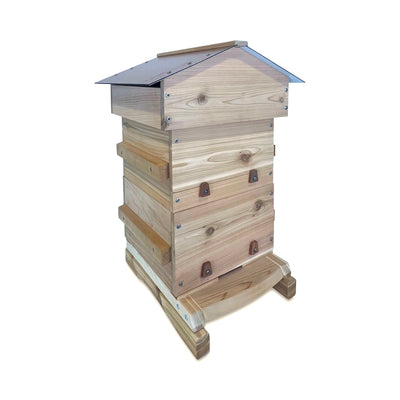Small Business Spotlight: Susan Laarman of Swarm PDX
Susan Laarman is creator and owner of SWARM, a mission-driven small business that’s working to raise awareness about the fragility of pollinators in our environment, and the threat to them created in part by heavy pesticide usage.
In addition to SWARM’s thoughtful product line, Susan offers education, events, and sponsors fundraisers to raise awareness and help pollinators. We asked Susan a few questions about use of honey in the garden, planting for pollinators, and attracting bees to your garden.
Many people who work on behalf of bees have an interesting story or reason regarding how they got started. Would you share yours with us?
A few years ago, there was a large honeybee die off In Oregon due to the misapplication (and overuse) of pesticides on Linden trees, which are often called “Bee Trees.” I noticed that this news created a buzz, and even aired on local TV news stations. My communications antennae went off and I realized this was a teachable moment because people understand that we need bees.
I organized some activities to raise awareness about why bees and pollinators are important, also why pesticides are harmful. This grew into work to help people create healthy backyard habitat and I started making Swarm’s Pollinator Planters, which are hexagon shaped raised garden beds crafted from Northwest woods. Each year Swarm donates some planters to nonprofits and schools to create pollinator habitat. Almost three years later: in addition to pollinator garden goods, Swarm’s product line has grown to include Bee Culinary and Bee Loved Body items inspired by bees that incorporate flowers and herbs from our own pollinator gardens.
You make and sell some remarkable products, such as Root Cuttings + Clones Raw Honey. Can you explain how that is used and why it is effective?
Raw honey has natural antibacterial properties that are beneficial to humans, and it can also can be used by gardeners to propagate plants. Honey can be used instead of synthetic rooting substances to encourage healthy root growth. It’s easy to do, just boil two cups water and stir in 1 tablespoon of raw honey (don’t boil honey) and cool. Dip cuttings into honey mixture and then place in potting medium –soil or water. This concoction is good for two weeks. We’ve even included information on our website about plants that lend themselves to root cuttings and cloning.
When advising people about how to plant with pollinators in mind, what tends to be the most resonant suggestion or something people hadn't realized?
We always encourage people to plant for a succession of blooms so that their garden offers pollen and nectar to bees throughout the growing season.
There’s usually plenty of flowering plants in summer, but early spring and late fall are important times for bees. In fact, late fall may be the most important time to help bees forage because the health of the bees at that time takes them through the winter.
Beekeepers should always add bee-friendly plants to their yard as honeybees can compete with native bees if there isn’t enough forage.
"We always encourage people to plant for a succession of blooms
so that their garden offers pollen and nectar to bees throughout the growing season."
What are the easiest steps people can take to keep their backyards welcoming to pollinators?
Awareness is growing about the importance of providing backyard bee habitat and there are many online “Plants for Pollinators” guides tailored to your region. Many nurseries also now have pollinator plant sections. In general, native plants are usually easy to grow and often require less watering. They’ve evolved to co-exist with native bees and Swarm always encourages people to learn more about the wild bees that live among us— most are ground dwellers so leaving some bare soil and not mulching too much is helpful. Often a south facing area in the garden is attractive to bees as they like some sun (just like us!).
If you could implement one basic change to how people garden in their backwards, what would it be?
We encourage people to avoid pesticides because they’re formulated to kill “pests” but the chemicals can’t distinguish between a good/bad insect. And even small amounts of chemicals can harm pollinators.






Leave a comment